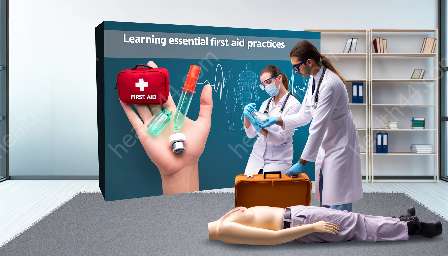Speech and language pathology plays a critical role in addressing communication disorders and enhancing overall health and well-being. This comprehensive guide will explore the various aspects of speech and language pathology, its relevance in health education and medical training, and its impact on health.
The Importance of Speech and Language Pathology
Speech and language pathology, also known as speech therapy, is a specialized field that focuses on assessing, diagnosing, and treating communication and swallowing disorders. These disorders can affect an individual's ability to communicate effectively, impacting their social interactions, academic performance, and overall quality of life. Speech and language pathologists work with people of all ages, from infants to the elderly, addressing a wide range of speech, language, and cognitive issues.
Role in Health Education and Medical Training
Speech and language pathology is an essential component of health education and medical training. Healthcare professionals, including doctors, nurses, and educators, benefit from understanding the principles of communication disorders and the role of speech therapy in addressing them. By incorporating speech and language pathology into their education and training, these professionals can better support individuals with communication difficulties and provide comprehensive care.
The Impact on Health
Communication is a fundamental aspect of human interaction, and speech and language pathology directly impacts an individual's overall health. By addressing communication and swallowing disorders, speech and language pathologists help improve a person's ability to express themselves, understand others, and participate in daily activities. Additionally, speech therapy can enhance cognitive function, promote social and emotional well-being, and support successful academic and professional achievements.
Key Areas of Focus in Speech and Language Pathology
Speech and language pathology encompasses various areas of focus, including:
- Articulation and Phonology: Addressing difficulties with speech sound production.
- Language Disorders: Working with individuals who experience issues with understanding and using language.
- Fluency Disorders: Treating stuttering and other fluency-related challenges.
- Voice Disorders: Managing conditions that affect the vocal cords and overall voice quality.
- Swallowing Disorders: Helping individuals with difficulties related to swallowing and feeding.
- Cognitive Communication Disorders: Supporting individuals with communication impairments resulting from cognitive changes.
Therapeutic Interventions
Speech and language pathologists utilize a wide range of therapeutic interventions to address communication disorders. These may include:
- Speech and Language Therapy: Providing individual or group therapy sessions to improve communication skills.
- Augmentative and Alternative Communication (AAC): Implementing strategies and devices to support non-verbal individuals in expressing themselves.
- Oral Motor Exercises: Engaging in exercises to strengthen the muscles involved in speech and swallowing.
- Cognitive-Communicative Therapy: Addressing language and cognitive challenges related to communication.
- Feeding and Swallowing Therapy: Developing strategies to improve safe and efficient swallowing function.
The Role of Speech and Language Pathologists
Speech and language pathologists play a multifaceted role in the healthcare and educational settings, including:
- Evaluating and Diagnosing: Conducting assessments to identify communication and swallowing disorders.
- Developing Treatment Plans: Creating individualized therapy plans to address specific needs and goals.
- Collaborating with Other Professionals: Working closely with healthcare providers, educators, and families to ensure comprehensive support.
- Advocating for Individuals: Promoting awareness and understanding of communication disorders and the importance of speech therapy.
- Research and Education: Contributing to advancements in the field and educating the community about speech and language pathology.
Challenges and Innovations in Speech and Language Pathology
While speech and language pathology is a vital field, it also faces challenges related to access to care, resource availability, and evolving communication needs. However, ongoing innovations in technology, research, and interdisciplinary collaboration are driving positive changes in the practice of speech therapy, leading to improved outcomes for individuals with communication and swallowing disorders.
Conclusion
Speech and language pathology is a dynamic and impactful profession that plays a crucial role in health education, medical training, and overall health. By addressing communication and swallowing disorders, speech and language pathologists contribute to enhancing individuals' quality of life, fostering effective communication, and promoting holistic well-being. Understanding the significance of speech and language pathology is essential in empowering healthcare professionals, educators, and the community to support those in need of communication assistance.

















